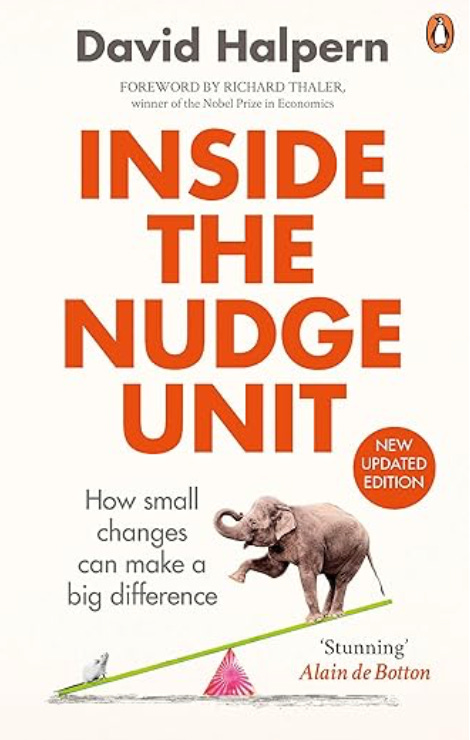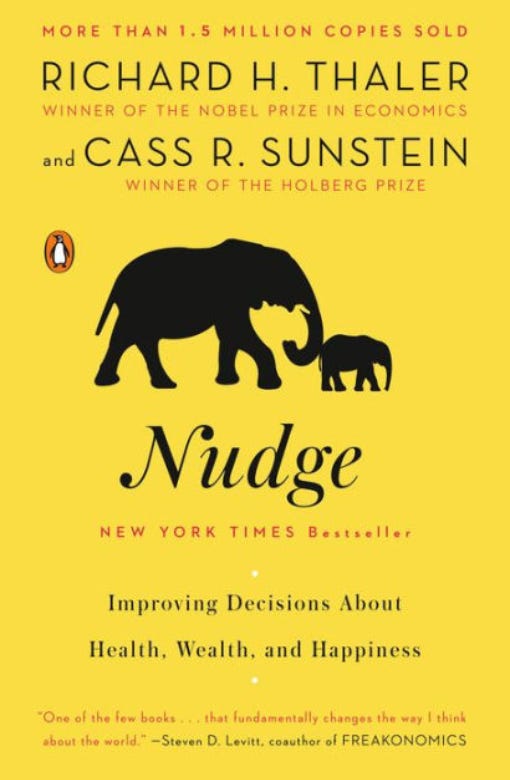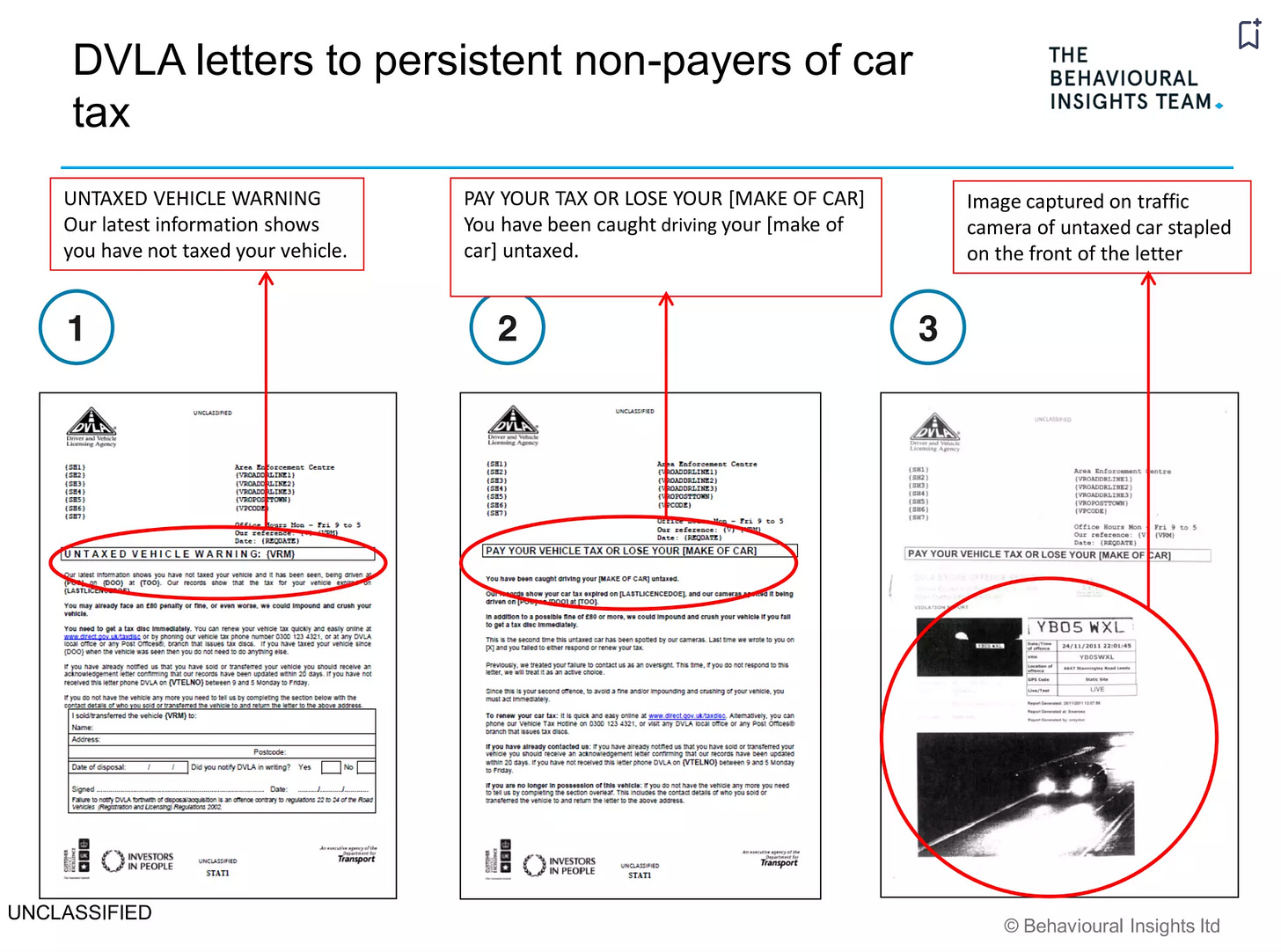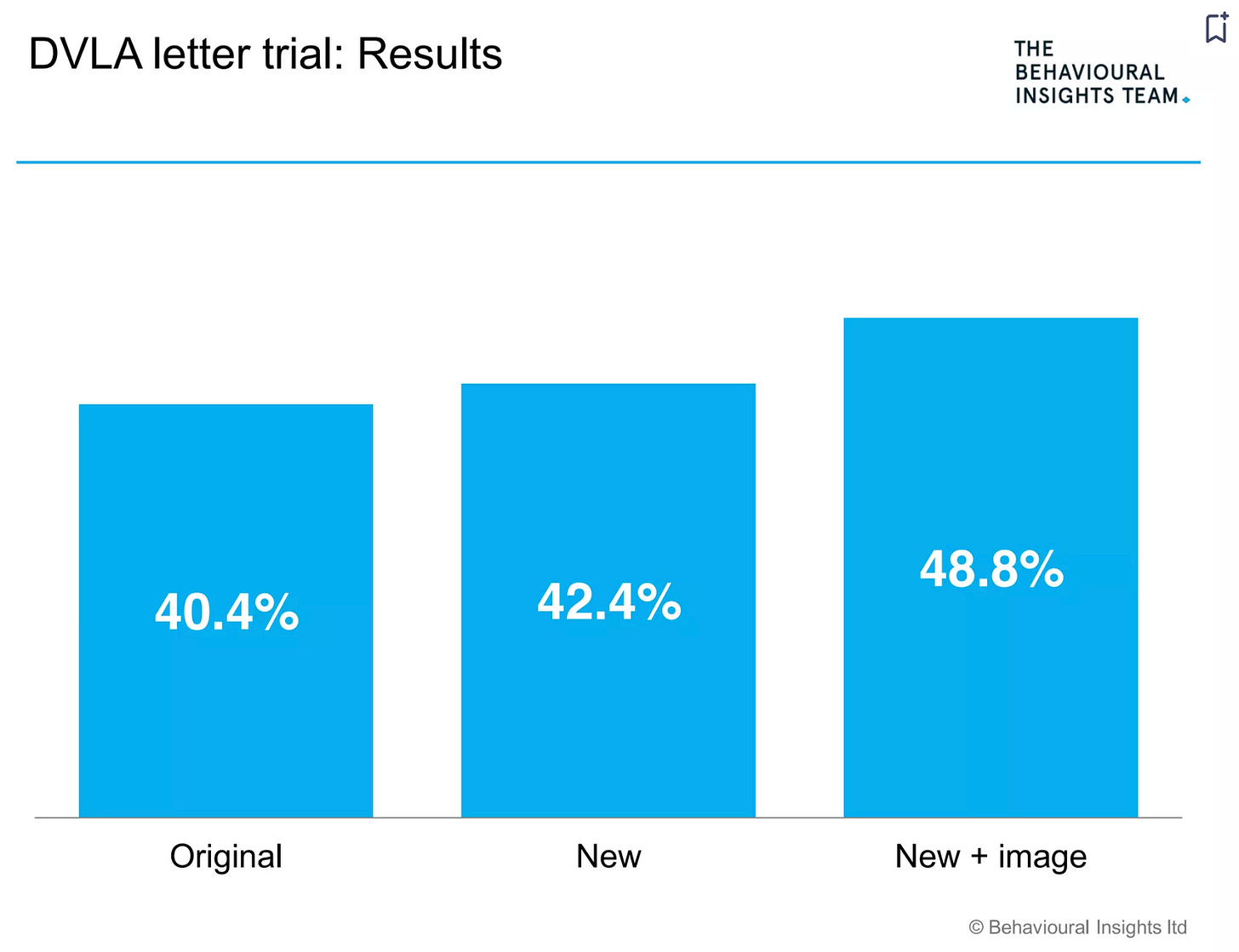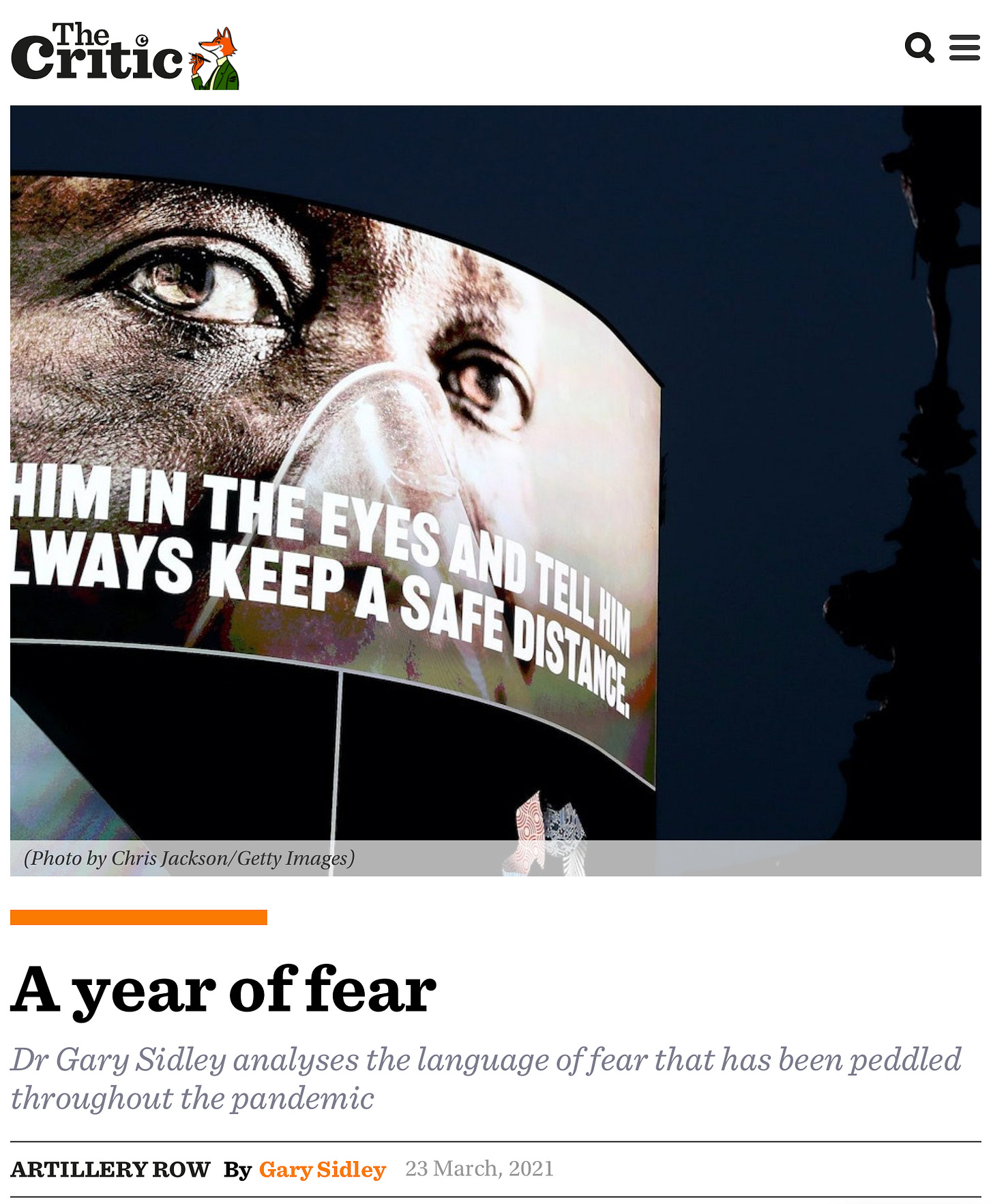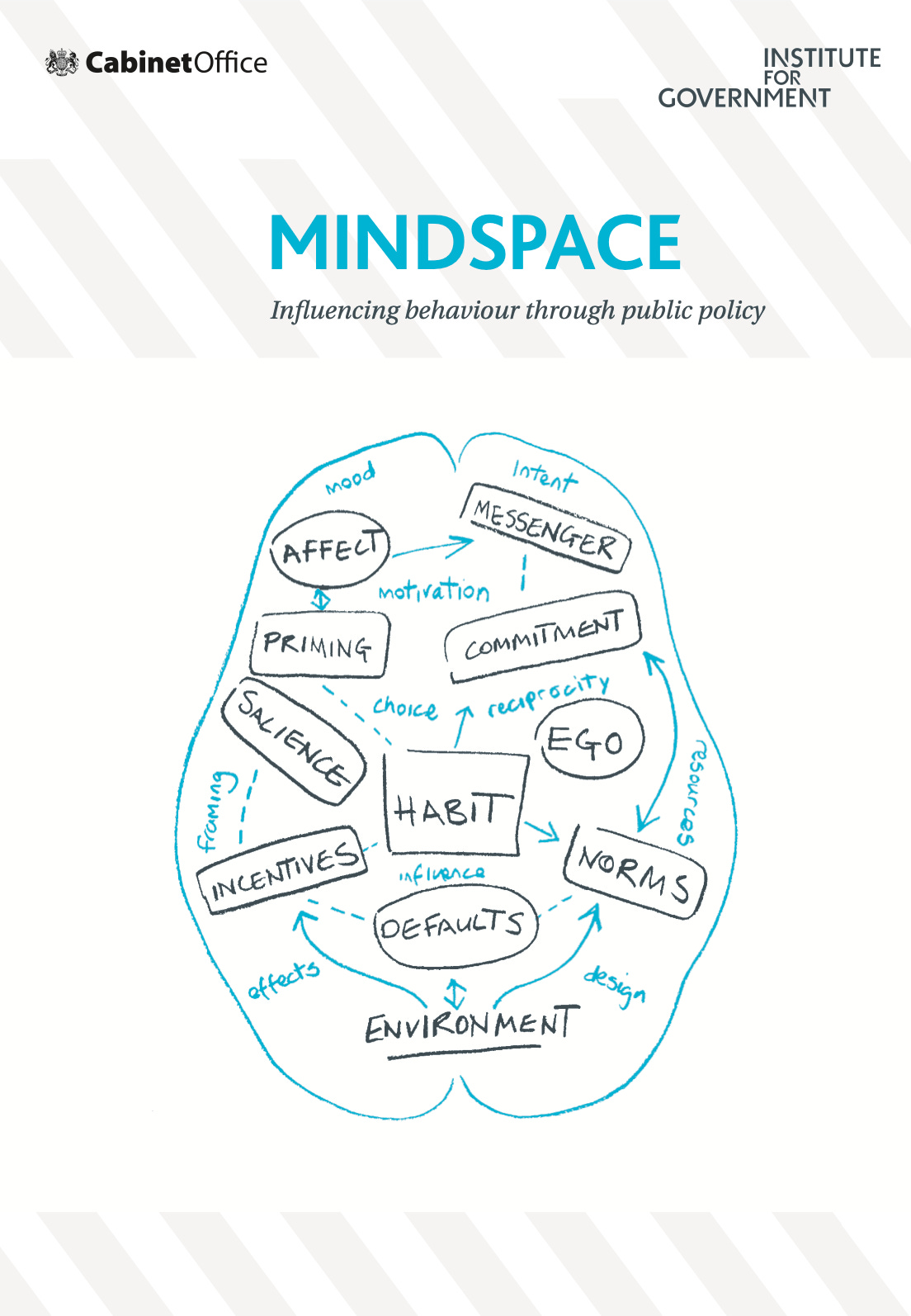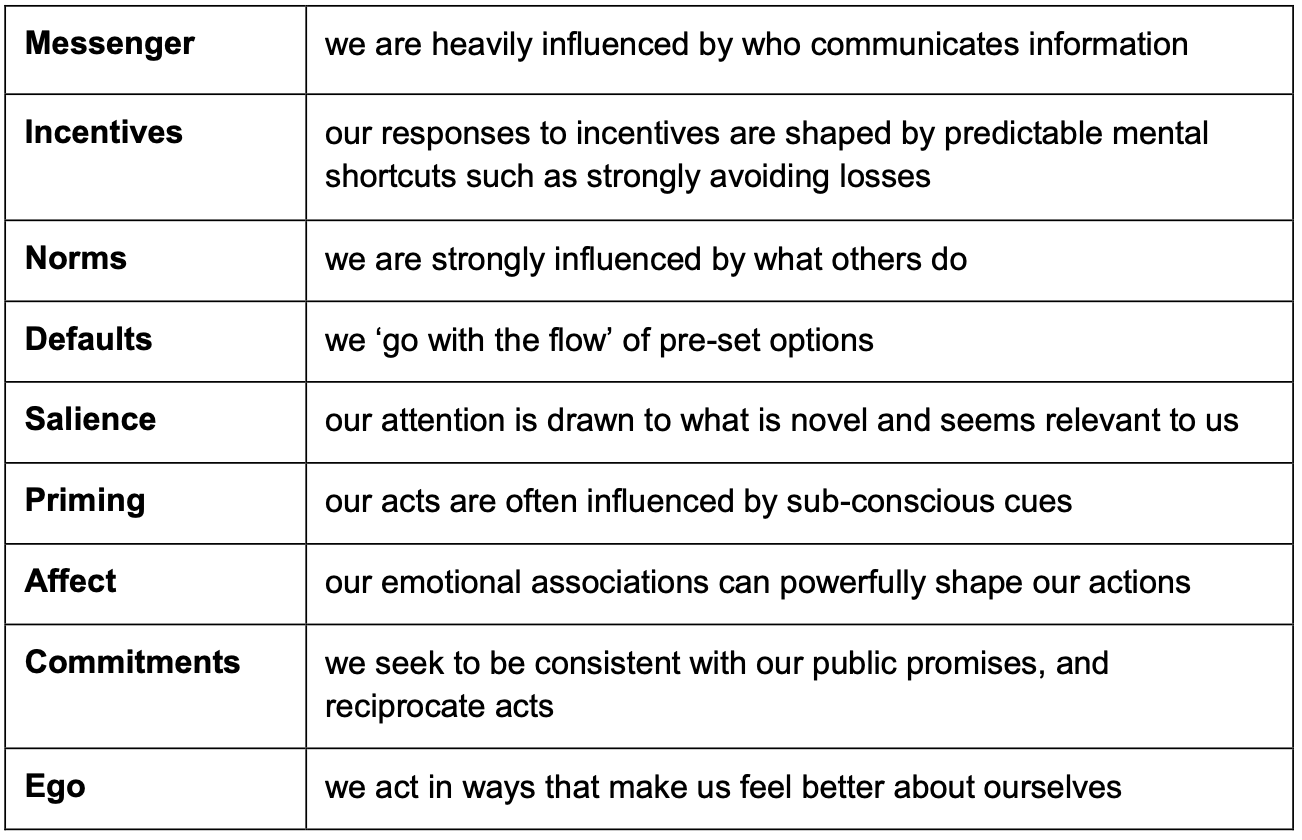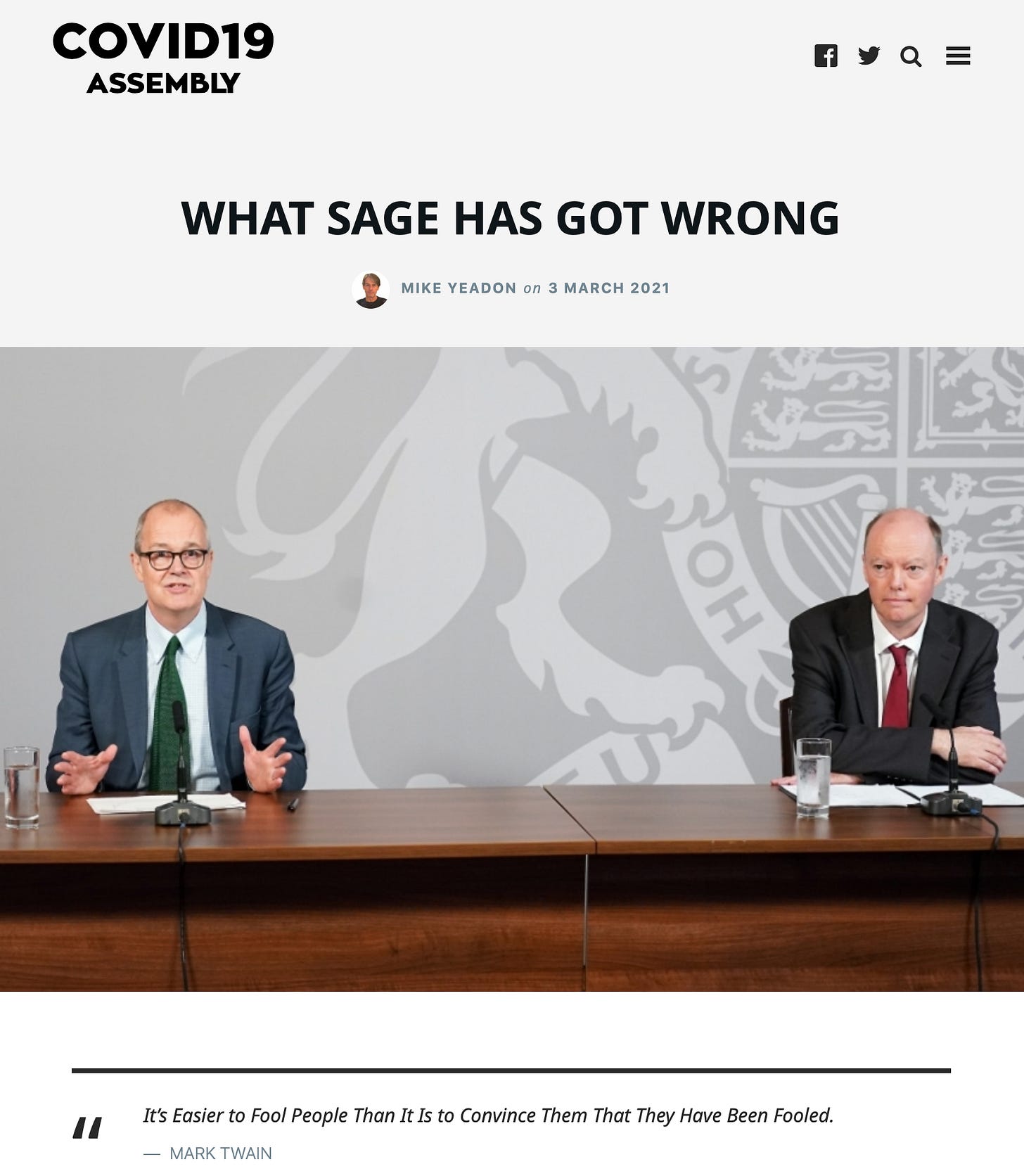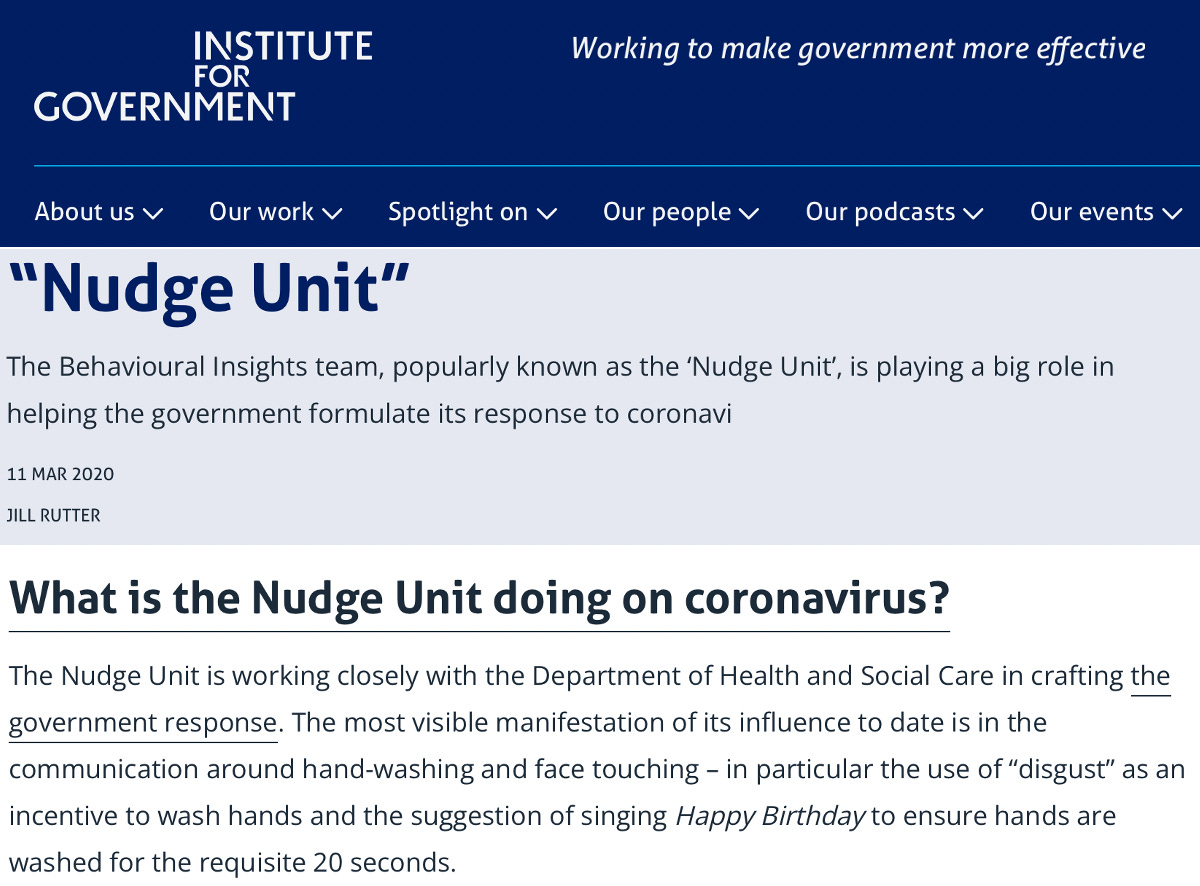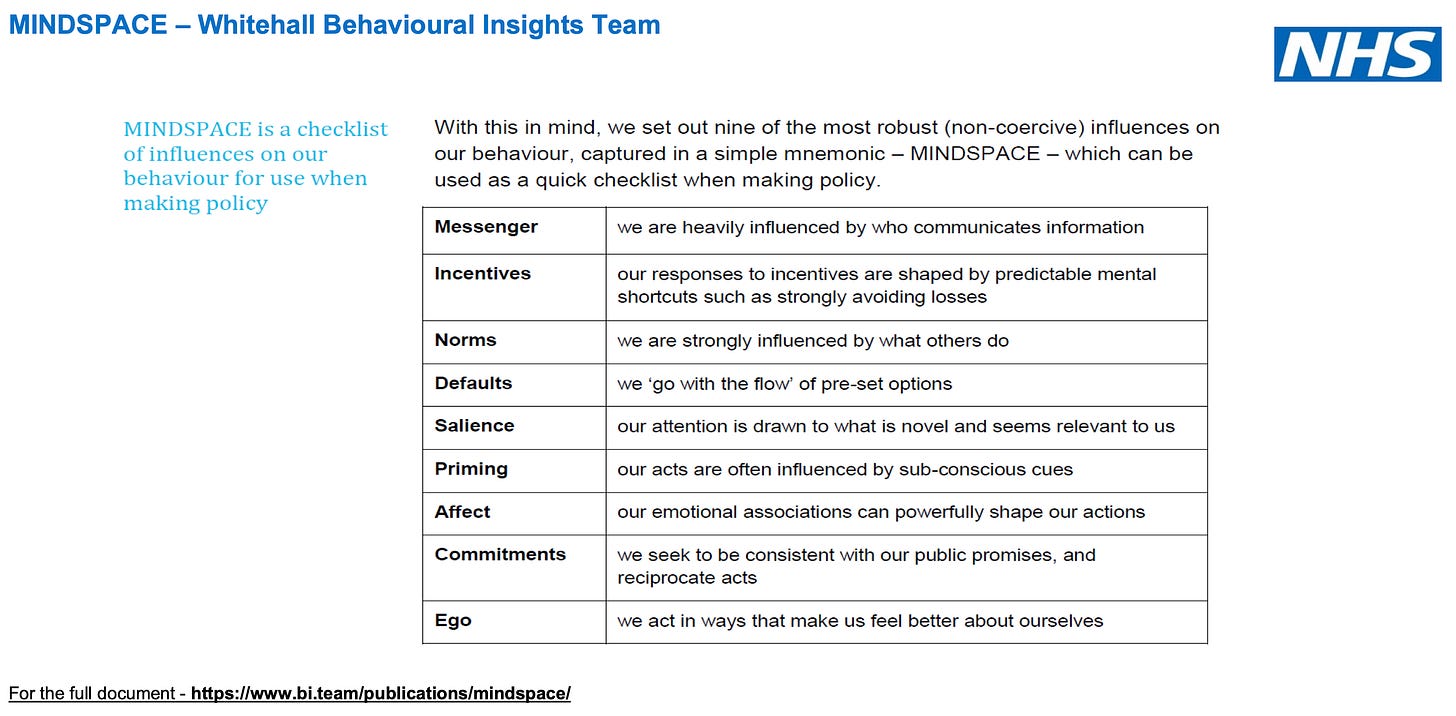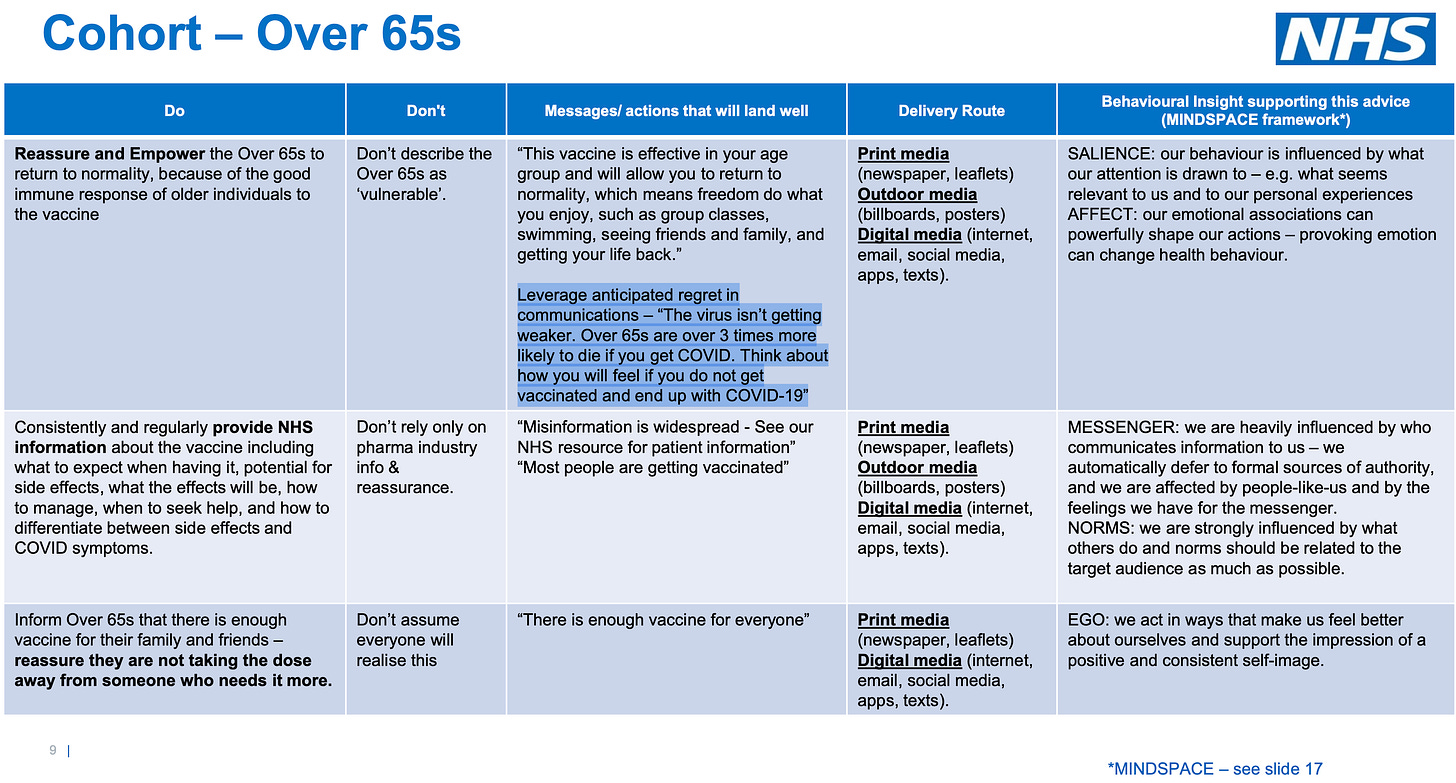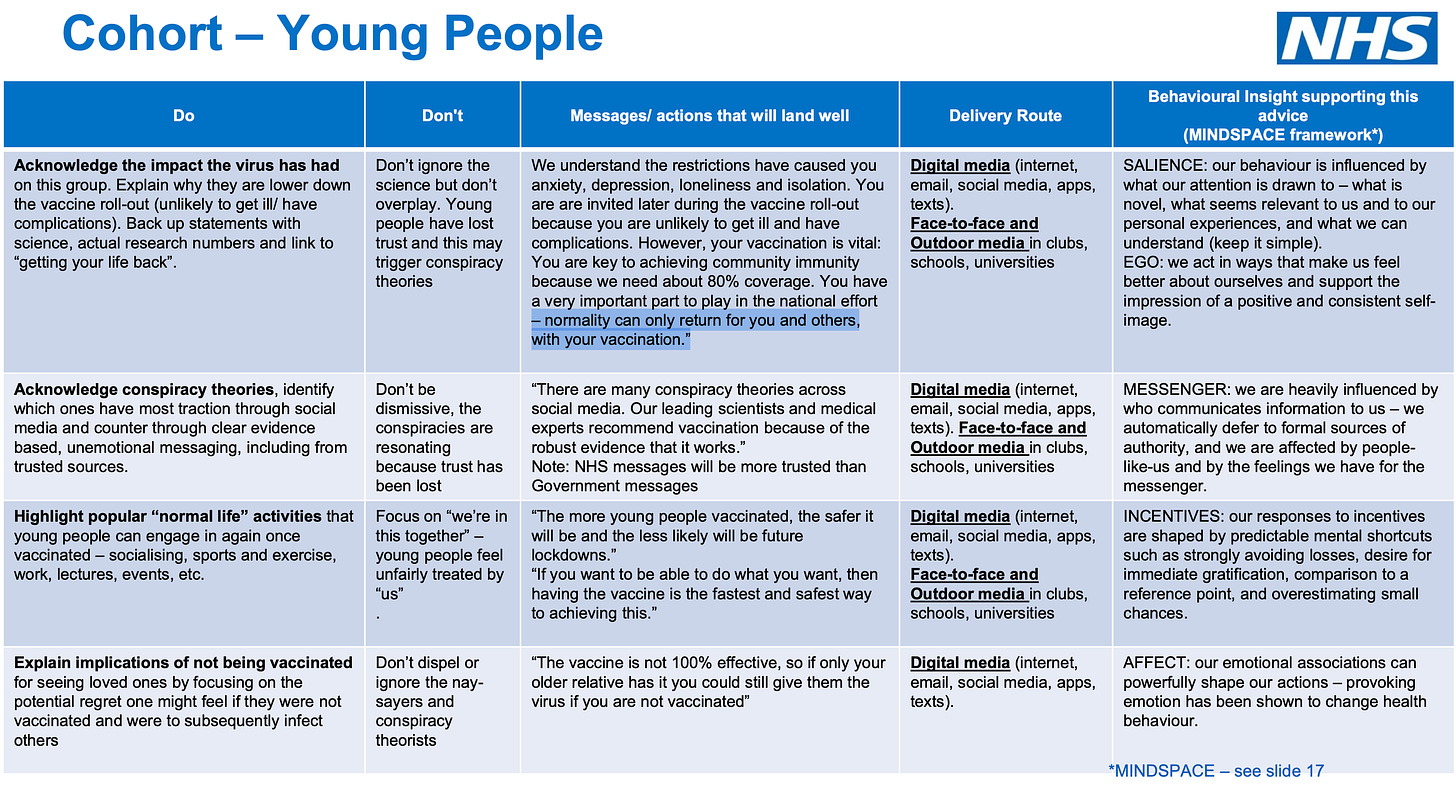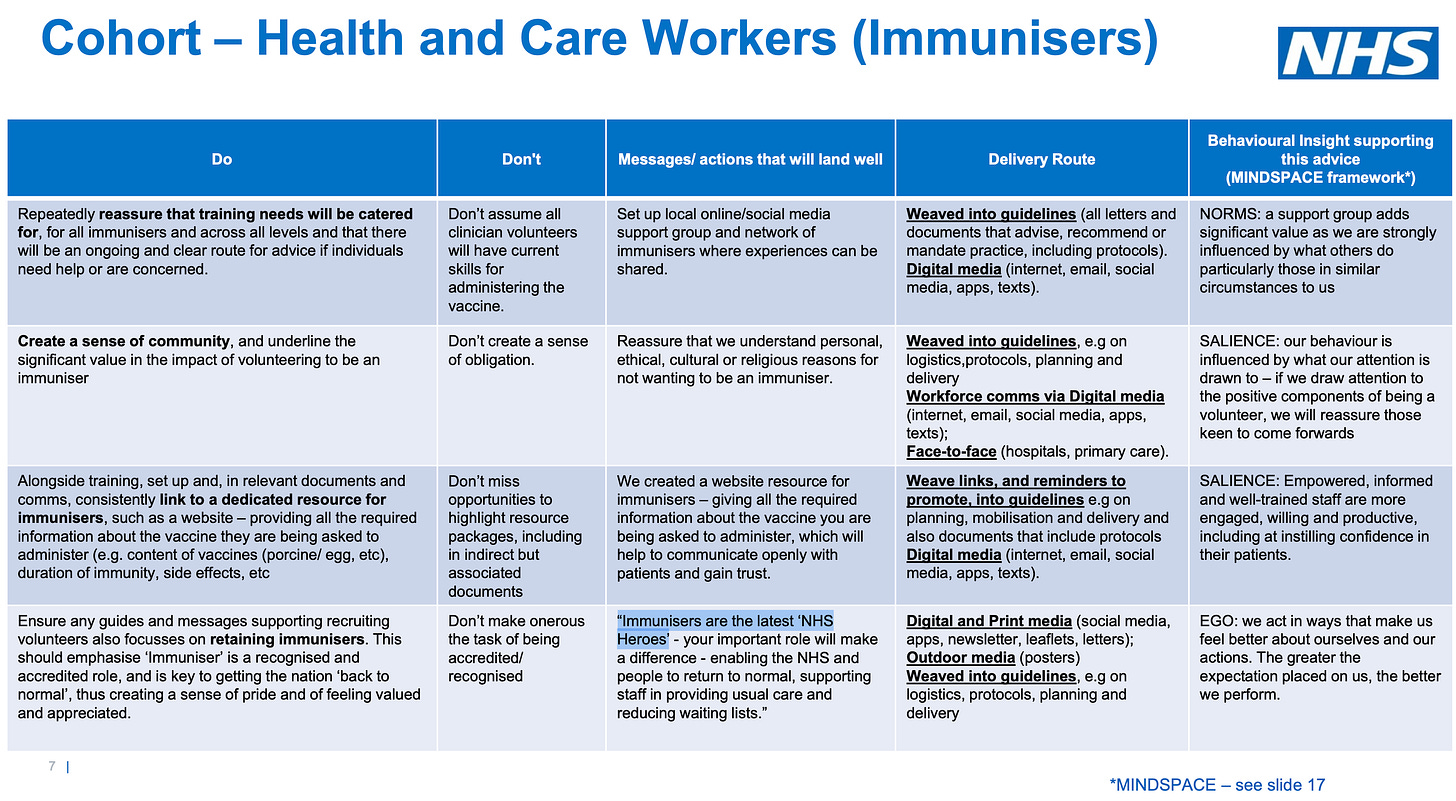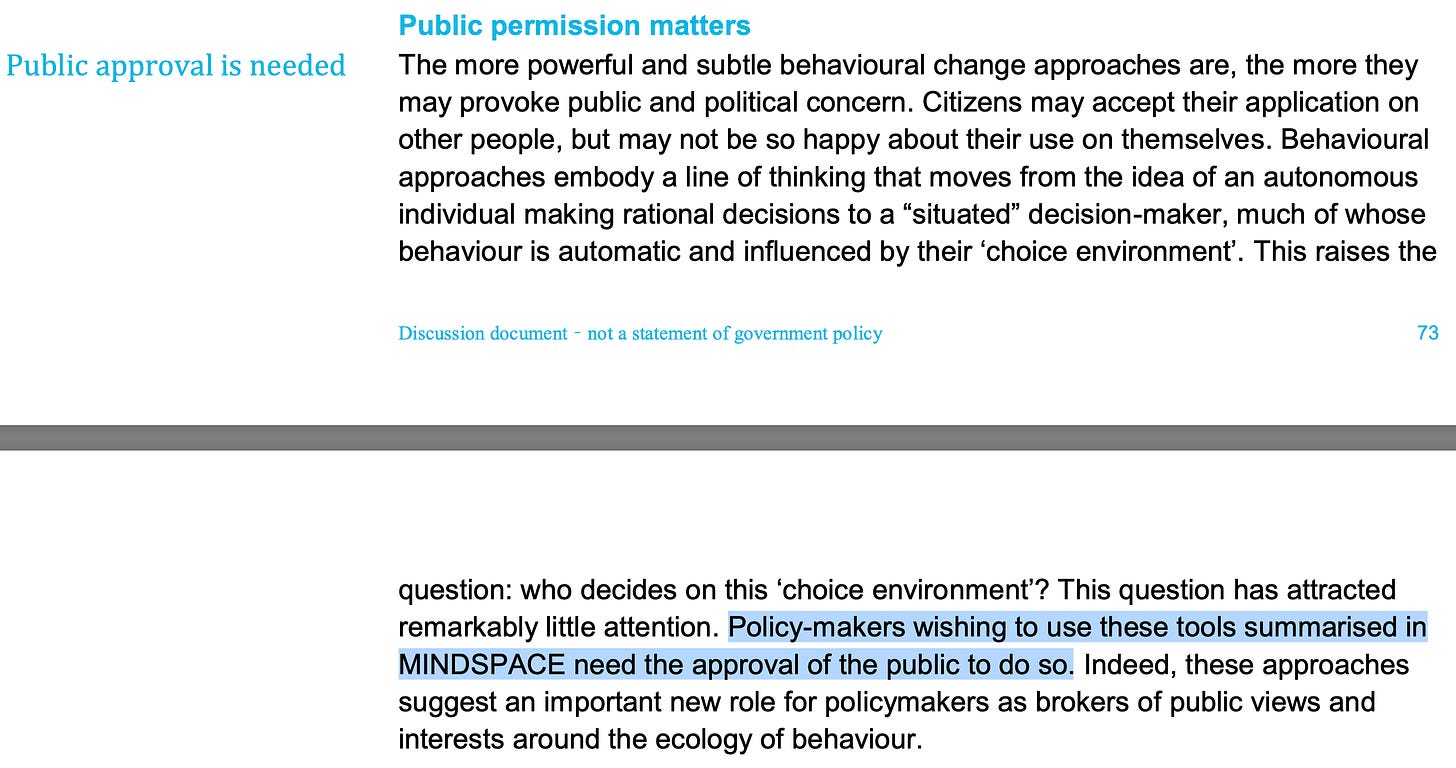Dear Church Leaders (and everyone else)
Further to this post on fear…
…this one, on the power of “nudging”, and how it has been abused, is similarly intended to lay groundwork for forthcoming articles.
The power of nudging
In 2015 I bought and read Inside the Nudge Unit by psychologist Dr David Halpern, the Chief Executive of the government’s Behavioural Insights Team (BIT), unofficially known as the Nudge Unit:
Inside the Nudge Unit follows on from Nudge,1 by Richard Thaler and Cass Sunstein,2 first published in 2008:
Halpern offers some fascinating insights into the early days of the “Nudge Unit”, originally set up in 2010 within the UK Cabinet Office at the start of the Coalition Government under David Cameron.
The power of a simple “nudge” can be seen from a change from “opt in” to “opt out” described in Chapter 3. Whereas just over 60% of employees of large firms chose to opt in to saving for a pension, more than 90% chose not to opt out. “A simple change in the default… led to more than five million extra UK workers saving for their pensions.”
Such nudging can be applied in all sorts of ways.
Halpern highlights in Chapter 4 how, as part of a campaign to encourage people to be more active, the painting of stairs at a railway station in the Australian city of Melbourne led to around 25% more people taking the stairs during rush hour, and 140% more during the rest of the day.
And in the same chapter he describes how the UK’s DVLA sent three different versions of a letter to persistent non-payers of car tax:
with the text UNTAXED VEHICLE WARNING
with the text of PAY YOUR TAX OR LOSE YOUR [MAKE OF CAR]
with the text of [2] plus an image of the untaxed care stapled on the front of the letter
With this outcome:
Perhaps not particularly surprising, but very useful. A lot more tax collected for very little outlay.
The appeal to governments is obvious enough, and understandable.
And what’s not to like, we might ask. When the purpose of the nudge is clearly beneficial. And when those responsible for the “nudging” are open about what they are doing.
Nudging is everywhere :-)
And I thought it best to put that “Subscribe” prompt at the end of the above section, rather than at the beginning of the next…
The abuse of nudging
Fast forward to 2020. Here is Dr Gary Sidley, retired consultant NHS psychologist, writing in March 2021 about what had been going on during the previous twelve months:
The British public’s widespread compliance with lockdown restrictions and the subsequent vaccine rollout has been the most remarkable aspect of the coronavirus crisis.
The removal of our basic freedoms — in the form of lockdowns, travel bans and mandatory mask wearing — have been passively accepted by the large majority of people. Furthermore, the proportion of the general public expressing a willingness to accept the Covid-19 vaccines has been greater in the UK than almost anywhere else in the world. But has the government achieved this widespread conformity through the unethical use of covert psychological strategies — “nudges” — in their messaging campaign?
Sidley goes on to describe the origins of the Nudge Unit, emphasising how it was conceived (p3) as “the world’s first government institution dedicated to the application of behavioural science to policy” and how it claims to “improve lives and communities”. He notes that in March 2021 several members of the Nudge Unit, together with other psychologists, were sitting on the Scientific Pandemic Insights Group on Behaviours (SPI-B), a subgroup of SAGE, advising the government on how to maximise the impact of its covid communications.
And he points out that there is a comprehensive account of the psychological approaches deployed by the Nudge Unit in a Cabinet Office/Institute for Government document entitled MINDSPACE: Influencing behaviour through public policy, in which it is claimed that applying the appropriate tools can achieve “low cost, low pain ways of ‘nudging’ citizens… into new ways of acting by going with the grain of how we think and act”.
I can’t help wondering to what extent MINDSPACE is a contrived acronym…
…and whether any of those devising MINDSPACE spotted that the same letters can also make the word PANDEMICS.
Another one of those coincidences.
Here’s another one:
But I digress.
Around the same time that Gary Sidley wrote his article in The Critic, Pfizer’s former Chief Scientist Dr Mike Yeadon wrote that:
…membership of SAGE was initially treated like a state secret. Eventually, membership was revealed… I was disappointed... There were no clinical immunologists. No-one who had a biology degree and a post-doctoral qualification in immunology. A few medics, sure. Several people from the humanities including sociologists, economists, psychologists and political theorists... [and] the modelling group [about which he elaborates at some length]
But while the authorities were anything but open about the membership of SAGE, they were frank about the Nudge Unit “playing a big role in helping the government formulate its response to coronavirus”3 in March 2020:
Nor is it a secret that Nudge Unit psychologists featured prominently (slide 17) in the formulation of NHS covid policy:
And it appears that they deployed a wide range of psychological tactics.
As Gary Sidley wrote in March 2021:
Behavioural scientists know that a frightened population is a compliant one [cf. e.g. Tony Benn’s comments featured in this recent article], so this was exploited as a way of compelling us to abide by the coronavirus restrictions.
Sidley goes on to point out that the minutes of the SPI-B meeting on 22nd March 2020 stated: “The perceived level of personal threat needs to be increased… using hard-hitting emotional messaging.” And how, with the help of the mainstream media, the British public were subsequently:
…bombarded with fear-inducing information, images and mantras: Covid-19 daily death counts reported without context; inflated predictions of future casualties; recurrent footage of dying patients in Intensive Care Units; and scary slogans like, “If you go out you can spread it”, or “People will die”, often accompanied by images of emergency personnel wearing PPE.
He then explains how behavioural psychologists exploited human nature:
We all strive to maintain a positive view of ourselves. Utilising this human tendency, behavioural scientists have recommended messaging that equates virtue with adherence to the Covid-19 restrictions, so that following the rules preserves the integrity of our egos while any deviation evokes shame. Examples of these nudges in action include: slogans such as, “Stay home, Protect the NHS, Save lives” and “Protect yourselves, Protect your loved ones”; TV advertisements where an actor tells us, “I wear a face covering to protect my mates”; the pre-orchestrated Clap for Carers ritual; ministers telling students not to “kill your gran”; and close-up images of acutely unwell hospital patients with the voice-over, “Can you look them in the eyes and tell them you’re doing all you can to stop the spread of coronavirus?”
And then there’s what the psychologists euphemistically refer to as “normative pressure”: awareness of the prevalent views and behaviour of our fellow citizens — through peer pressure and scapegoating — can prise us into compliance. The simplest example is ministers repeatedly telling us that the vast majority of people are “obeying the rules”. But normative pressure is less effective in changing the behaviour of the deviant minority if there is no visible indicator of pro-social conformity rooted in communities. The mandating of masks in summer 2020 — in the absence of strong evidence that they reduce viral transmission in the community4 — enabled the rule breakers to be instantly distinguished from the followers. Appearing unmasked in public places now felt comparable to failing to display the icon of a dominant religion while being among devout followers; even if no explicit challenge ensues, the implicit demand to conform is palpable.
And how similar manipulative tactics were used in 2021 to promote vaccine uptake:
The tactic of fear inflation is evident in a recent NHS England document that recommends [slide 9, pictured below] that healthcare staff “leverage anticipated regret” on the over-65s cohort by telling them they are “over three times more likely to die”. The recommended follow-up statement is, “Think about how you will feel if you do not get vaccinated and end up with Covid-19?” For young people — who are at vanishingly small risk of suffering serious illness should they contract Covid-19 — shame is the selected tool from the behavioural-science armoury; the recommendation is that they should be told “normality can only return, for you and others, with your vaccination” [slide 11]. As for the healthcare staff who will administer the jabs, the psychological experts suggest an ego boost from being hailed as the “latest ‘NHS Heroes’” [slide 7].
Sidley finishes his article by considering the ethics of using covert psychological strategies to improve compliance with public health policy.
In comparison to the government’s traditional tools of persuasion (such as information provision and rational argument) these methods of influence differ in their nature and subconscious mode of action. Consequently, three sources of ethical concern emerge: problems with the methods per se; problems with the goals to which they are applied; and problems with the lack of consent.
It is questionable whether a civilised society should knowingly increase the emotional discomfort of its citizens as a means of gaining their compliance. State scientists deploying fear, shame and scapegoating to change minds is an ethically dubious practice that in some respects resembles the tactics used by totalitarian regimes such as China, where the state inflicts pain on a subset of its population in an attempt to eliminate beliefs and behaviour they perceive to be deviant.
And highlighting the issue of unintended consequences:
Shaming and scapegoating has emboldened some people to harass those unable or unwilling to wear a face covering. More disturbingly, fear inflation has led to many people being too scared to attend hospital with non-Covid illness, while many old people, rendered housebound by fear, will have died prematurely from loneliness. Collateral damage of this sort is likely to be responsible for many of the tens of thousands of excess non-Covid deaths in private homes.
Asking:
In a civilised society, is it morally acceptable to use psychological strategies that are associated with this level of collateral damage?
And:
Would British citizens have agreed to the furtive deployment of fear, shame and peer pressure as a way of levering compliance with lockdowns and mask mandates?
He points out that the authors of the 2010 MINDSPACE document — one of whom is David Halpern, author of The Nudge Unit, who became a member of SAGE and the SPI-B — recognised (p73-74) the need for public approval:
But while the MINDSPACE document (p54) suggests some practical ways of acquiring this consent, including “deliberative forums”…
…Sidley says that he was:
…unaware of any public consultation of this type being conducted to gain the public’s permission to use covert psychological strategies.
He emphasises that:
At an individual level, obtaining a recipient’s permission prior to an intervention is a long-established principle of ethical clinical practice. Informed consent is an essential precursor to any medical procedure, including vaccination. To ensure ethical integrity, healthcare staff should be encouraging each potential recipient to, consciously and rationally, weigh up the pros and cons of accepting the Covid-19 vaccine rather than nudging them towards compliance.
And concludes:
The covert psychological strategies [deployed during the covid era] have achieved their aims of inducing a majority of the population to obey the draconian public health restrictions and accept vaccination. The nature of the tactics deployed — with their subconscious modes of action and the emotional discomfort generated — do, however, raise some pressing concerns about the legitimacy of using these kinds of psychological techniques for this purpose. The government, and their expert advisors, are operating in morally murky waters. An open, public-wide debate about the ethical integrity of these approaches — and the extensive collateral damage associated with them — is urgently required.
All of which would still apply even if what we were told about covid had been true (which it wasn’t). And even if the so-called covid vaccines had actually been safe and/or effective (which they weren’t).
Dear Church Leaders homepage (or via Substack, or e.g. DuckDuckGo, but not Google for some reason)
The Big Reveal — Christianity carefully considered (which can also be found via Substack, or e.g. DuckDuckGo, but not Google)
The link is to a 2009 edition
Cass Sunstein, an adviser to Barack Obama, co-authored this 2008 paper which addresses the “challenges” of “[those who] believe that powerful people have worked together in order to withhold the truth” and advocates “cognitive infiltration” as the “best response”
There is a typo on the website
And at the time of year when the risk from respiratory viruses is at its lowest


